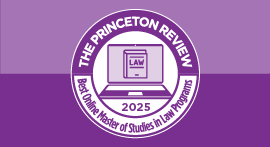
In the majority of your law school courses, and probably in all of your first-year classes, your only texts will be casebooks—collections of written judicial decisions in actual court cases.
The case method eschews explanation and encourages exploration. In a course that relies entirely on the casebook, you will never come across a printed list of "laws."
Indeed, you will learn that in many areas of law there is no such thing as a static set of rules, but only a constantly evolving system of principles. You are expected to understand the law—in all of its ambiguity—through a critical examination of a series of cases that were decided according to such principles. You may feel lost, groping for answers to unarticulated questions. This is not merely normal, it is intended.
How the Case Method Works
In practical terms, the case method works like this: For every class meeting, you will be assigned a number of cases to read. The cases are the written judicial opinions rendered in court cases that were decided at the appellate level. (The reason for reading cases from courts of appeals or supreme courts is that such cases turn on issues of law, not of fact. If you are charged, tried, and convicted of murder and wish to appeal your case, you do not simply get a whole new trial at a higher level. You must argue that your conviction was improper, not that it was inaccurate.)
Your casebook will contain neither instructions nor explanations. Your assignments simply will be to read the cases and be in a position to answer questions based on them. There will be no written homework assignments, just cases, cases, and more cases.
You will write, for your own benefit, briefs of these cases. Briefs are your attempts to summarize the issues and laws around which a particular case revolves and to make sense of the court's findings in terms of similar cases. One way or another, your law school probably will tell you how to brief a case. If there's an optional seminar, you really ought to attend. In the event that you are left in the dark, it's utterly imperative that you find out how to brief a case. Google it. Ask a second year. Unless you are insanely brilliant, good briefing is really a key to getting good grades. Over the course of a semester, you will try to integrate the content of your case-briefs and your notes from in-class lectures, discussions, or dialogues into some kind of cohesive whole.
From Briefs to Outlines
Typically, you will take your copious briefs and class-notes and create an outline from which you will study for your final exams. Since almost all of your grade for a particular course will rest on your performance on the final, it is essential to establish a system that will allow you to recall the case appropriate for a given legal circumstance within an exam period.
This is especially true since most of your exams will be open book. Once you've see your case-books, you'll understand why having them on the day of the test will not be particularly helpful. Unless, of course, you have your outline handy. Outlines, whether you write your own, create them in a study group, or buy the commercial variety, will be an intrinsic part of this system. Don't neglect them. Your academic success rests on it.
Explore Graduate Programs for You
Explore our featured graduate schools & programs to find those that both match your interests and are looking for students like you.
Best Online JD Programs
Online JD programs offer flexibility, affordability, access to innovative technologies, students from a diversity of career backgrounds, and global opportunities.
Best Online MSL Programs
Master of Studies in Law (MSL) programs are for non-lawyers whose careers in their organizations will benefit from legal training even though they are not required to be practicing attorneys.

Find MBA Programs Matched to Your Interests
Explore our featured business schools to find those that are looking for students like you.


